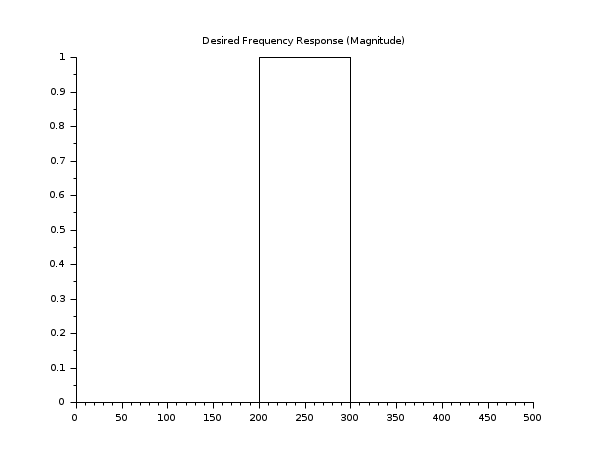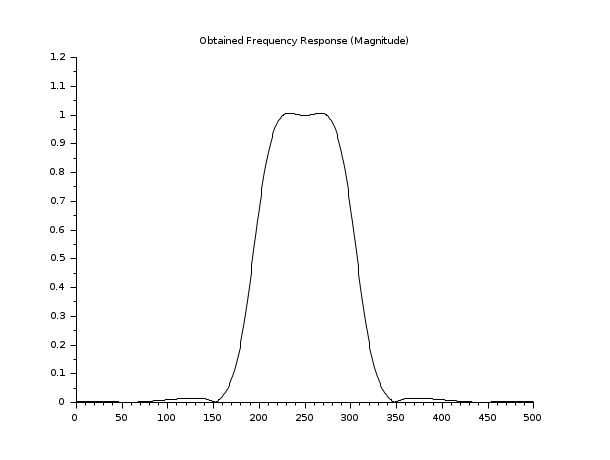- Aide de Scilab
- Traitement du Signal
- Filtres
- analpf
- buttmag
- casc
- cheb1mag
- cheb2mag
- convol
- ell1mag
- eqfir
- eqiir
- faurre
- ffilt
- filt_sinc
- filter
- find_freq
- frmag
- fsfirlin
- group
- hilbert
- iir
- iirgroup
- iirlp
- kalm
- lev
- levin
- lindquist
- remez
- remezb
- srfaur
- srkf
- sskf
- syredi
- system
- trans
- wfir
- wfir_gui
- wiener
- wigner
- window
- yulewalk
- zpbutt
- zpch1
- zpch2
- zpell
Please note that the recommended version of Scilab is 2026.0.1. This page might be outdated.
See the recommended documentation of this function
yulewalk
least-square filter design
Syntax
Hz = yulewalk(N,frq,mag)
Arguments
- N
integer (order of desired filter)
- frq
real row vector (non-decreasing order), frequencies.
- mag
non negative real row vector (same size as frq), desired magnitudes.
- Hz
filter
B(z)/A(z)
Description
Hz = yulewalk(N,frq,mag) finds the N-th order iir filter
n-1 n-2 B(z) b(1)z + b(2)z + .... + b(n) H(z)= ---- = --------------------------------- n-1 n-2 A(z) z + a(2)z + .... + a(n)
which matches the magnitude frequency response given by vectors frq and mag. Vectors frq and mag specify the frequency and magnitude of the desired frequency response. The frequencies in frq must be between 0.0 and 1.0, with 1.0 corresponding to half the sample rate. They must be in increasing order and start with 0.0 and end with 1.0.
Examples
f=[0,0.4,0.4,0.6,0.6,1]; H=[0,0,1,1,0,0]; Hz=yulewalk(8,f,H); fs=1000; fhz = f*fs/2; scf(0); clf plot2d(fhz',H'); xtitle('Desired Frequency Response (Magnitude)') [frq,repf]=repfreq(Hz,0:0.001:0.5); scf(1); clf plot2d(fs*frq',abs(repf')); xtitle('Obtained Frequency Response (Magnitude)')


| Report an issue | ||
| << window | Filtres | zpbutt >> |